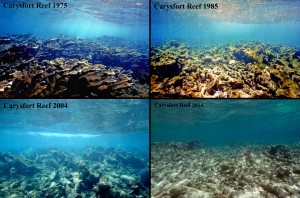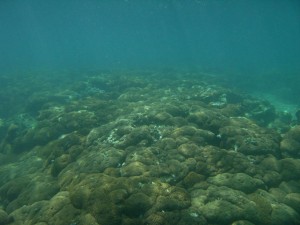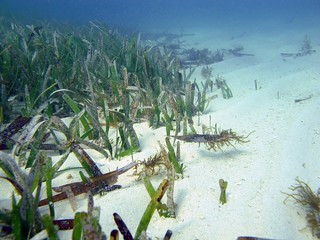Posts
How Castro and Cousteau’s Legendary Friendship Preserved Cuba’s Oceans
/in Conservation, Cuba, Cuba Research & Conservation, Featured/by Ocean DoctorSaving Cuba from US: Our Most Important Work to Date
/in Cuba Research & Conservation, Featured, Ocean Doctor's Reflections/by Ocean DoctorCuban Embassy Opens in DC After 54 Years: Will Cuba Remain the ‘Green Jewel’ of the Caribbean?
/in Conservation, Cuba, Cuba Research & Conservation, Featured, Ocean Doctor's Reflections/by Ocean Doctor
The Cuban flag flying in Washington, DC for the first time in 54 years, signaling the reopening of the Cuban Embassy and normalization of relations with the U.S. (Photo: David E. Guggenheim)
With each tug of the rope by Cuban Foreign Minister Bruno Rodriguez, the Cuban flag inched upward, finding a slight breeze and proudly showed off its brilliant colors of red, white and blue to the 500 or so onlookers. The Cubans and Cuban-Americans—never known for their silence at public events—beamed with national pride and shouted with joy as the flag inched up, “Fidel, Fidel!” Countless eyes filled with tears. Many embraced. The world was changing before us. The Cuban flag flew in Washington, DC for the first time in 54 years, signaling the reopening of the Cuban Embassy and normalization of relations with the U.S.
Inside at the embassy at the reception that followed, we hoisted mojitos and exchanged congratulations. But a number of us have long anticipated this moment with both joy and worry, realizing that the U.S. could become a greater threat to Cuba as its friend than it ever was as its enemy.
Read the full post at EcoWatch.com
Listen: Ocean Doctor on Science Friday: Conserving Cuba’s Coral Reefs
/in Cuba, Cuba Research & Conservation, Featured/by Ocean Doctor
Ira Flatow (left), host of PRI’s “Science Friday” and Ocean Doctor president, Dr. David E. Guggenheim (right), at the CUNY studios in New York (Photo: Courtesy of PRI’s Science Friday)
Ocean Doctor president, David E. Guggenheim joined Science Friday host, Ira Flatow, to discuss Cuba’s coral reefs, their future, and how they may serve as a “living laboratory” to help us restore coral reefs in the Caribbean, where half of the coral reefs have been lost since 1970 according to a 2014 study.
Listen to the recording and visit Science Friday for more information.
OMG I Thought You Were Dead!
/in Conservation, Cuba, Cuba Research & Conservation, Featured, Ocean Doctor's Reflections/by Ocean Doctor
A dramatic time series of photos documenting the 95 percent loss of coral cover from Carysfort Reef, Key Largo, Florida since 1975. The photos capture the loss of a once thriving colony of elkhorn coral, Acropora palmata (Photos: Phil Dustan)
I shouted with euphoric joy through my regulator, 20 feet underwater. I can only imagine how wide my eyes were. It must have been difficult to discern between an expression of delighted surprise and a textbook example of wide-eyed diver panic. My eyes were transfixed on an old friend with a funny name whom I hadn’t laid eyes on in years. I had heard he was dead – or at least gravely ill. But there in front of me, larger than life, vibrant and embracing the sun, my friend was very much alive and healthy, clearly enjoying the good life in Cuba.
Several years earlier, I joined an expedition to explore a corner of the Gulf of Mexico I had only heard about from colleagues: The magnificent coral reef ecosystem of Veracruz, Mexico. Seated inside the DeepRover submersible with great anticipation for a vibrant reef that lay below me, I was lowered from the deck of a Mexican Navy ship into the warm blue waters below and radioed the ship that I was going to begin my descent.
Read the full post at EcoWatch.com
Researchers Discover Planet’s Northernmost Coral Reef
/in Ocean Newswire/by Ocean Doctor
Researchers have discovered the world’s northermost coral reefs off Japan’s Tsushima Island (Image: Kaoru Sugihara)
Coral reefs are typically found in the warm, clear waters of the tropics and subtropics. Researchers in Japan have recently discovered a coral reef far north of any previously discovered on the planet, off the coast of Japan’s Tsushima Island at 34 degrees north latitude. As a reference, this would put the reef north of the city of Atlanta, Georgia. While cold water and deep water corals are found in polar regions, the types of reef-building corals discovered in Japan are generally much more sensitive to cold water and to cloudy or turbid waters, making this discovery all the more remarkable, especially in light of winter water temperatures of 13 degrees Celsius (55 degrees Fahrenheit), considered extremely low and most often fatal to most coral reefs. Read more
Coral Reefs Collapsed, then Recovered After 2,500 Years
/in Ocean Newswire/by Ocean DoctorIn a study led by Lauren T. Toth at Florida Institute of Technology published in the journal, Science, coral reef ecosystems in the tropical eastern Pacific “collapsed for 2500 years, representing as much as 40% of their history, beginning about 4000 years ago.” A series of powerful El Nino events, which include periods of significantly warmer ocean temperature every three to seven years, coincided with the 2,500-year period of coral decline. This was followed by a cycle of La Nina events characterized by much cooler water, beginning 3,200 to 3,800 years ago. Corals recovered during the millenia since but now face a return to extreme weather conditions like those that wiped them out, due to climate change impacts. Read more
Seagrass Protects Coral Reefs from Ocean Acidification
/in Featured, Ocean Newswire/by Ocean DoctorThe BBC reports on research pointing to the importance of seagrasses to protecting coral reefs against the impacts of ocean acidification, caused by carbon dioxide from fossil fuel emissions dissolving in seawater, causing unprecedented increases in the ocean’s acidity.
Saving the Oceans from Acidification Starts With an End to Fossil Fuel Subsidies
/in Ocean Newswire/by Ocean DoctorWe’ve described ocean acidification as potentially the “the gravest and most immediate planetary threat yet,” and as more and more research results become public, it appears that this threat is, indeed, every bit as potent as we had feared.Yet it has been a painfully slow process for ocean acidification to gain traction in the media and is still far from being a “mainstream” issue. So when the San Francisco Chronicle recently called for action to deal with the issue, we took notice. Read more
Events
Nothing Found
Sorry, no posts matched your criteria
Fax: +1 (202) 888-3329
P.O. Box 53090
Washington, DC 20009
Just Released: The Remarkable Reefs of Cuba: Stories of Hope from the Ocean Doctor by Dr. David E. Guggenheim, President of Ocean Doctor



